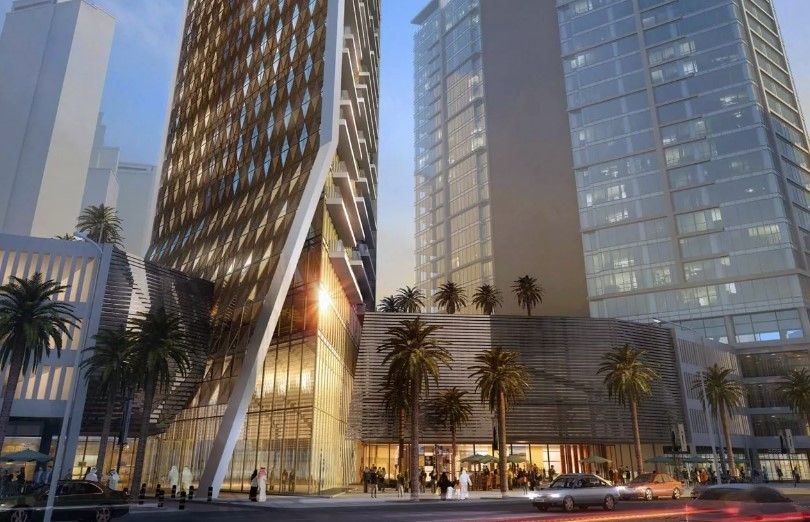Components of a Property Investment Portfolio
Investing in property is an appealing strategy due to its potential for profitability. Unlike stocks and bonds, real estate can be acquired with a fraction of the total cost upfront, making you an immediate property owner. Dubai offers numerous off-plan projects from master developers, often requiring down payments as low as 5–15%. Furthermore, with mortgage rates at historic lows in the UAE (around 3–3.5%), taking out a mortgage can be a viable option. Let's explore the five most popular property investment strategies, including rental properties, Real Estate Investment Groups (REIGs), Real Estate Investment Trusts (REITs), house flipping, and online real estate platforms.

1. Rental Properties
Dubai is increasingly attracting individuals to live, work, and establish businesses, creating significant rental opportunities. Approximately 70% of residents in Dubai rent their homes. Even if you lack the funds to cover the full property cost upfront, you can secure a loan with Loan-to-Value (LTV) ratios reaching up to 80% for expatriates. Some developers even offer payment plans after property completion. After finding a tenant, you can enjoy a consistent cash flow, with typical lease durations of one year for residential properties and three to five years for commercial properties.
Being a landlord involves some research into current market trends and managing property maintenance and paperwork. Property management services come in handy here, as experienced professionals can find reliable tenants, draft contracts, address maintenance issues, and collect fees on your behalf. This way, you can generate passive income without the need for hands-on management, even if you reside overseas. Property prices in Dubai generally appreciate over time, potentially doubling your investment in about seven years. Due to Dubai's undervalued real estate market, you can find one-bedroom apartments with access to private beaches in prestigious areas like JBR or Palm Jumeirah at relatively affordable prices.

2. Real Estate Investment Groups (REIGs)
REIGs are ideal for investors seeking profits from rental real estate without the responsibilities of being a landlord. They operate similarly to small mutual funds. Companies in this category acquire or construct apartment complexes or condos, allowing investors to buy units collectively. There are no ownership limits for investors in the UAE. The company managing the REIG assumes all landlord responsibilities, such as marketing, tenant selection, and maintenance, in exchange for a percentage of the monthly rent. Investing in REIGs typically requires substantial capital and access to financing. One advantage is that you earn profits even if your unit remains unoccupied, as all units contribute a portion of the rent to save income for vacancies.
3. House Flipping
House flipping, popular in the USA, involves acquiring and reselling a property at a higher price within six months, typically after minimal renovations. Successful flipping requires expertise in real estate valuation, repairs, and marketing. However, this strategy can adversely affect the real estate market due to a lack of long-term oversight. It played a role in the 2008 crisis in the UAE, leading to restrictions and regulations by developers and banks. Some developers, like Aldar Properties, require buyers to pay at least 50% of a property's value before resale. Others may claim up to 70% of the property's full value.

4. Real Estate Investment Trusts (REITs)
REITs are public or private investment funds that buy and operate properties using investor capital. They are similar to stocks and trade on major exchanges, offering high liquidity. You can cash out without needing a broker or title transfer. Unlike other investment types, REITs provide access to commercial real estate, such as offices and malls, which is challenging for individual investors. There are two types of REITs: equity trusts, representing ownership in real estate, and mortgage trusts, focused on profits from mortgage financing. In the UAE, public REITs must distribute at least 80% of their profits to shareholders annually. However, the strategy is currently less favorable due to price fluctuations in the UAE real estate market.
5. Online Real Estate Platforms
Online real estate platforms, also known as crowdfunding, enable individuals to invest with lower capital compared to direct property purchases. These platforms allow you to participate in larger commercial or residential deals. An advantage is the lower entry point; for example, SmartCrowd, MENA's first crowdfunding platform, offered investments in Dubai's real estate market for as little as AED 500 (USD 136) in 2021. The platform, regulated by the Dubai Financial Services Authority, aims to make real estate accessible to individuals of all income levels. Investments on these platforms often generate monthly income and have the potential for value appreciation over time. However, they are typically backed by a single asset and require a minimum investment period, often around three years.

Why Choose Dubai for Real Estate Investment?
Dubai's appeal for real estate investment extends from its low crime rate and excellent infrastructure to diverse commercial and residential property options. It also offers 100% real estate ownership in freehold areas, allowing flexibility in leasing, resale, and renovation without restrictions. If you're looking to diversify your real estate portfolio, Metropolitan Premium Properties' experts can assist in locating properties, sizing up investments, and estimating renovation costs. They offer guidance on the best income-generating strategies tailored to your needs and access to exclusive offers from leading UAE developers. Additionally, their property management services handle tenant selection, contract registration, maintenance, and rent collection, ensuring a hassle-free passive income experience.



